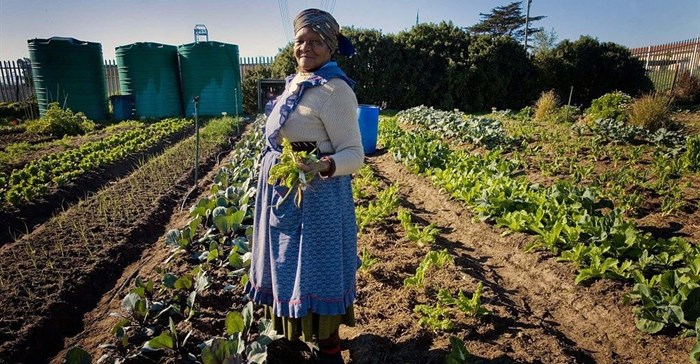
GenderCC Southern Africa and the Land Access Movement of South Africa (LAMOSA) are kick-starting a number of provincial capacity-building workshops and information seminars around the country starting from 10 February 2017 in the Free Sate and North West province. The information seminars will also be conducted in Mpumalanga, and Gauteng, where women smallholder farmers will be highlighting the impact of climate change on them as farmers and the support they need.
According to Dorah Marema, executive director of GenderCC SA, although progress has been made to recognise the role of women in agriculture, much more needs to be done to support women as primary providers of household food security. “Women still do not receive the same level of support from societal institutions, then their male counterparts. We want to build understanding and partnerships for women which can influence policy and the status quo. In the end, it must be noted that this is not about women, but about society at large,” Marema emphasized.
In 2015, GenderCC SA mobilised more than 3,000 women in South Africa to register their concerns and demands to the United Nations Framework Convention on Climate Change (UNFCCC) Conference of the Parties (COP21) in Paris, France.
Last year, GenderCC SA highlighted issues of gender equality and women empowerment in agricultural adaptation programmes and the need for access to finance at the United Nations Framework Convention on Climate Change (COP22) in Marrakesh, Morocco. Studies indicate that the success of increased agricultural production and food security on the continent rests largely in the hands of women farmers.
Despite the critical role women farmers play in food security, they still face major constraints when it comes to accessing productive resources such as land, credit, technologies and information. Ignoring the potential and contribution of women in agriculture may come at a price for society, in terms of food insecurity and hunger.
LAMOSA, in partnership with GenderCC SA, women for Climate Justice, supported by Oxfam South Africa (OZA), organised small-scale farmers in Mpumalanga in January this year for a multi-stakeholder dialogue and information session on climate change. The event coincided with the former President Kgalema Motlanthe High-Level Panel on Assessment of Post-Apartheid Legislation and its impact on the lives of the poor. The small-scale farmers, including Khomotso Moseri of GenderCC SA made their submission to the panel on 16 and 17 January 2017.
Last year, LAMOSA led a successful Constitutional Court challenge against the South African government on behalf of landless communities to voice their disapproval of the timing of new land restitution claims, which they said disadvantaged thousands of previous claimants whose cases were lodged during the initial process but have still not been settled.
The government reopened its land claims process in 2014, allowing people who missed an earlier deadline for lodging claims for compensation to do so within the next five years. President Jacob Zuma signed into law the Restitution of Land Rights Amendment Act, which reopens the restitution claims process that closed at the end of 1998 and gives claimants five years - until 30 June 2019 - to lodge further claims.